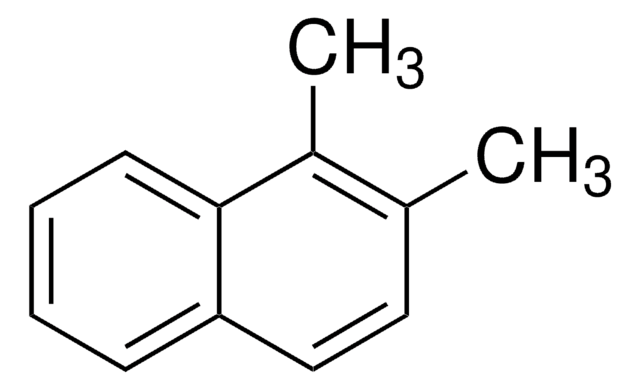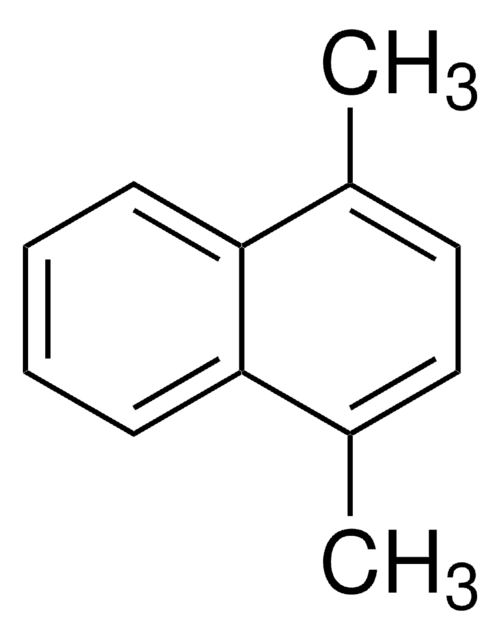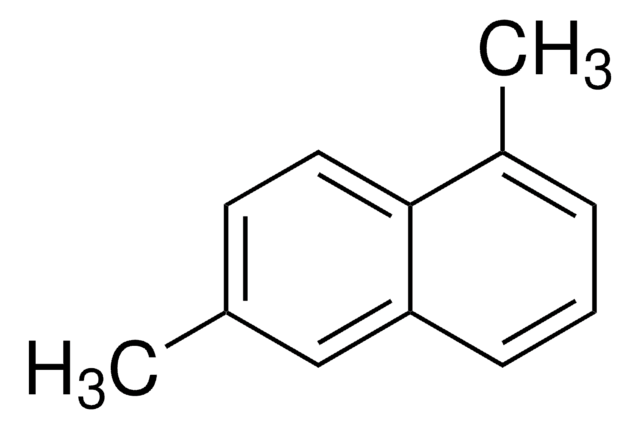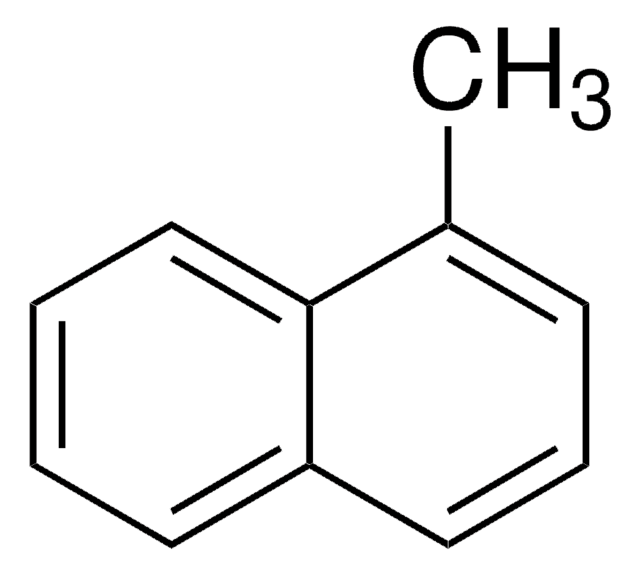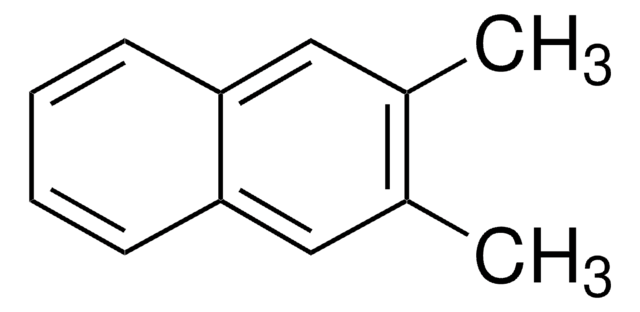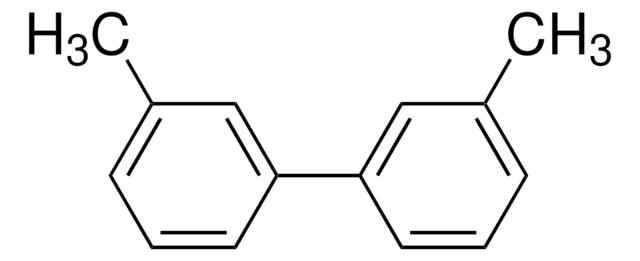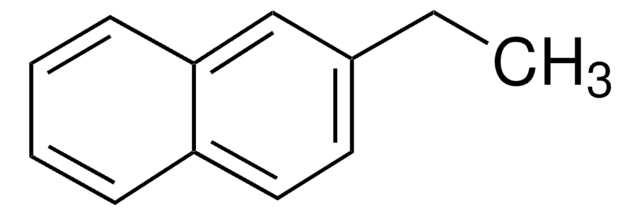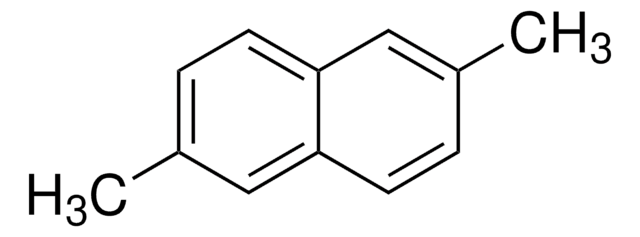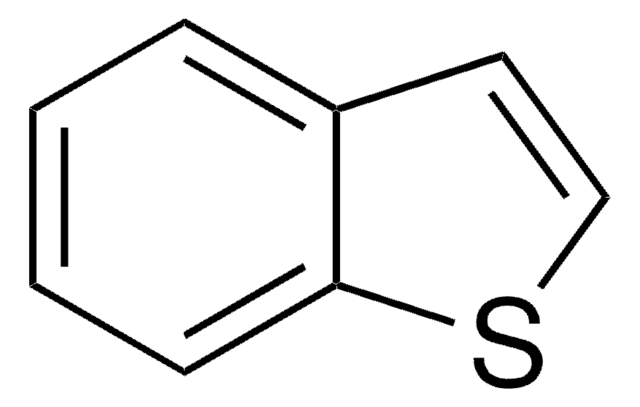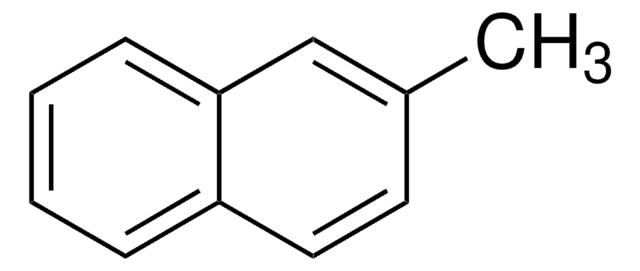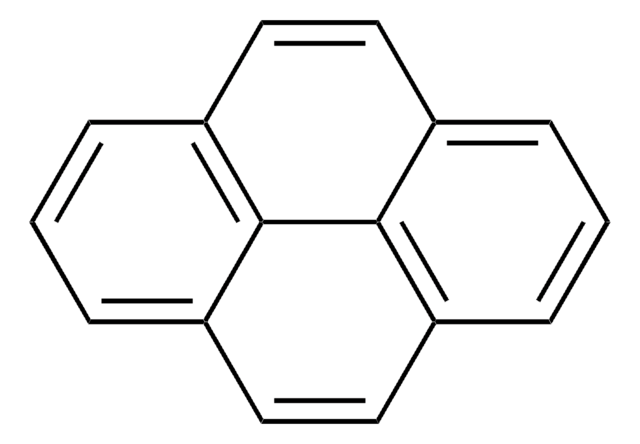D170208
1,3-Dimethylnaphthalene
96%
Autenticatiper visualizzare i prezzi riservati alla tua organizzazione & contrattuali
About This Item
Formula condensata:
C10H6(CH3)2
Numero CAS:
Peso molecolare:
156.22
Beilstein:
2039378
Numero CE:
Numero MDL:
Codice UNSPSC:
12352100
ID PubChem:
NACRES:
NA.22
Prodotti consigliati
Saggio
96%
Forma fisica
liquid
Indice di rifrazione
n20/D 1.609 (lit.)
P. eboll.
263 °C (lit.)
Densità
0.982 g/mL at 25 °C (lit.)
Stringa SMILE
Cc1cc(C)c2ccccc2c1
InChI
1S/C12H12/c1-9-7-10(2)12-6-4-3-5-11(12)8-9/h3-8H,1-2H3
QHJMFSMPSZREIF-UHFFFAOYSA-N
Informazioni sul gene
human ... CYP1A2(1544)
Cerchi prodotti simili? Visita Guida al confronto tra prodotti
Avvertenze
Warning
Indicazioni di pericolo
Consigli di prudenza
Classi di pericolo
Aquatic Acute 1 - Aquatic Chronic 1
Codice della classe di stoccaggio
10 - Combustible liquids
Classe di pericolosità dell'acqua (WGK)
WGK 3
Punto d’infiammabilità (°F)
228.2 °F - closed cup
Punto d’infiammabilità (°C)
109 °C - closed cup
Dispositivi di protezione individuale
Eyeshields, Gloves
Scegli una delle versioni più recenti:
Possiedi già questo prodotto?
I documenti relativi ai prodotti acquistati recentemente sono disponibili nell’Archivio dei documenti.
I clienti hanno visto anche
Tjalling Jager et al.
Environmental science & technology, 51(13), 7707-7713 (2017-06-10)
Efficiently assessing and managing the risks of pollution in the marine environment requires mechanistic models for toxic effects. The General Unified Threshold model for Survival (GUTS) provides a framework for deriving toxicokinetic-toxicodynamic (TKTD) models for the end point survival. Two
Odd G Brakstad et al.
Chemosphere, 204, 87-91 (2018-04-14)
Hydrocarbon biodegradation may be slower in cold Arctic than in temperate seawater, and this will affect the toxicity time window of the hydrocarbons. In this study, the acute toxicities of water-soluble phases of 1,3-dimethylnaphthalene, phenanthrene, fluoranthene, and low energy water-accommodated
Sangwoo Lee et al.
Environmental science. Processes & impacts, 19(9), 1117-1125 (2017-08-08)
Polycyclic aromatic hydrocarbons (PAHs) and alkylated PAHs are known to be major toxic contaminants in spills of petroleum hydrocarbons (oil). Spilled oil undergoes weathering and over time, PAHs go through a series of compositional changes. PAHs can disrupt endocrine functions
Nien-Hsin Kao et al.
Marine pollution bulletin, 97(1-2), 319-332 (2015-06-08)
Three fishing harbors were investigated to study the polycyclic aromatic hydrocarbons in the sediments and trace possible anthropogenic sources by identification of cyclic terpenoid biomarkers. Seventeen terpanes, 10 steranes and 10 bicyclic sesquiterpanes in the marine diesel and the three
Kunal Roy et al.
European journal of medicinal chemistry, 44(5), 1941-1951 (2008-12-27)
A series of naphthalene and non-naphthalene derivatives (n=42) having cytochrome P450 2A6 and 2A5 inhibitory activities, reported by Rahnasto et al., were subjected to QSAR and QAAR studies. The analyses were performed using electronic, spatial, shape and thermodynamic descriptors to
Il team dei nostri ricercatori vanta grande esperienza in tutte le aree della ricerca quali Life Science, scienza dei materiali, sintesi chimica, cromatografia, discipline analitiche, ecc..
Contatta l'Assistenza Tecnica.